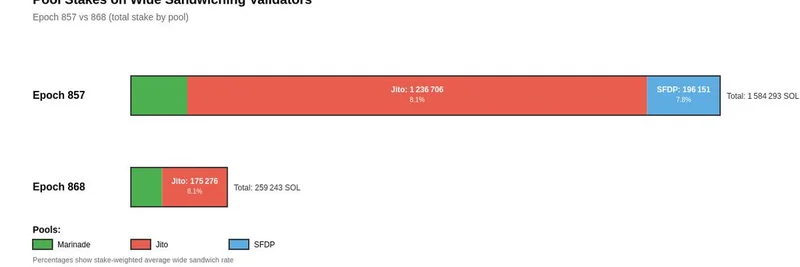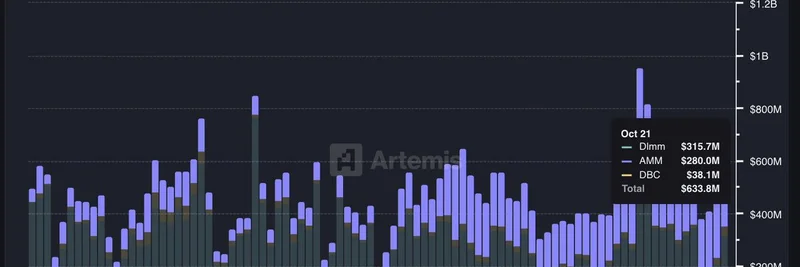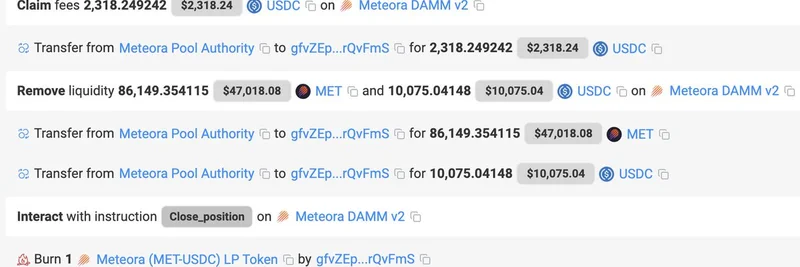If you've been keeping an eye on the Solana ecosystem, especially with all the buzz around meme tokens and high-speed trading, you've probably heard about MEV—Maximum Extractable Value. It's that sneaky way validators can reorder transactions to squeeze out extra profits. One particularly aggressive form is "wide sandwiching," where validators front-run and back-run user trades at a rate over 6%, often hitting retail traders hard, including those dabbling in memecoins.
A recent post from @repetny, a key figure at Marinade Finance, highlights just how quickly these bad actors are getting punished by the market. According to the data, stakes on wide-sandwiching validators have plummeted from 1.58 million SOL in Epoch 857 to just 259k SOL in Epoch 868—a staggering drop of 1.32 million SOL in just 10 epochs. That's the network's way of saying, "No thanks" to exploitative behavior.
What's driving this shift? Marinade Finance is stepping up with their Performance Score Rating (PSR) system. When validators get caught wide sandwiching, their bonds are slashed to cover redelegation costs. This isn't just a slap on the wrist—it's a real financial hit that encourages responsible staking. As repe notes, it's all about building a more decentralized and fair Solana network.
For meme token enthusiasts on Solana, this is huge. Platforms like Pump.fun and Raydium thrive on fast, fair trades, but sandwich attacks can inflate slippage and eat into your gains on that next viral cat coin. By penalizing these validators, the ecosystem becomes safer for everyone, from degens flipping tokens to serious stakers looking for yields without the drama.
If you're staking SOL, consider options like Marinade's mSOL, which prioritizes decentralization. It's a win-win: earn rewards while supporting a healthier blockchain. Check out the full post here for more details, and stay tuned to Meme Insider for the latest on how these changes ripple through the meme token world.



